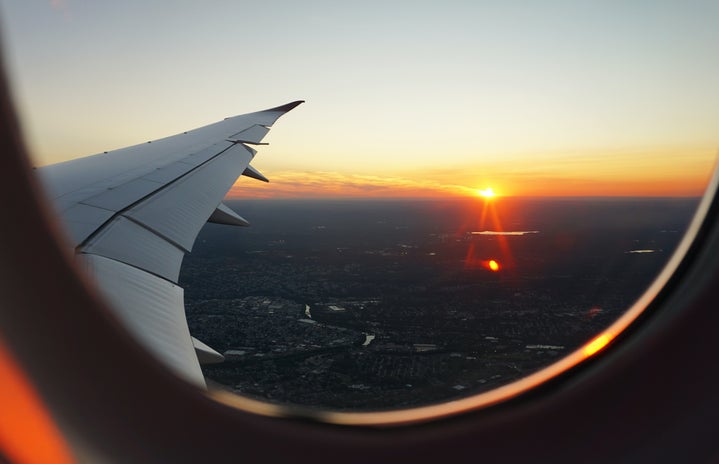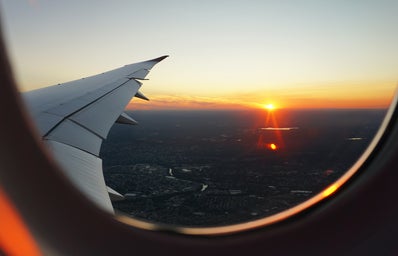Why should a woman be limited to staying in her hometown? Why can’t a woman book a flight and leave the next day? Why shouldn’t a woman get to enjoy everything the world has to offer?
Realistically, solo travelling is never going to be entirely safe. Being a woman in a foreign country, alone, is quite a daunting prospect. You are at risk of everything a woman is at risk of to begin with, but add a language barrier, a phone with a dead battery, and a confusingly located Airbnb, and you are certainly not in the best position.
There is a lot of things to consider when you decide to travel on your own, so here is a quick list:
Safety
The first thing you must think of is your safety. Learn the country’s emergency numbers, make sure you always have enough cash for a taxi and if possible, turn on your phone’s location and let your family or friends know where you’re planning to go. There are plenty of women’s groups on social media where it’s possible to make new connections in new cities – just be wary of meeting and always do so in public areas.
It is your responsibility to be aware of the local culture and rules of the place you’re visiting. While the country might not have an official law on what to wear or how you should behave, it is best to familiarise yourself with the ‘Dos and Don’ts’ of an area.
In 2019, Asher and Lyric Fergusson created the ‘Women’s Danger Index’, which documents the ’50 Worst (& Safest) Countries for Solo Female Travel’. The ‘worst’ country for women to visit was South Africa, with women unable to walk alone at night, fearing intentional homicide and ‘non-partner sexual violence.’ The ‘safest’ country was Spain, with a lack of violent attitudes towards women or legal discrimination against women. Notably, the United States came in at 19th on the list, making it the most dangerous Western country to visit.
Many of the quantifiable criteria used in the ‘Women’s Danger Index’ does not fall to the responsibility of women. Women do not hold accountability for being targeted or harassed. Your trip should be fun. My main recommendation is to choose wisely where you would like to visit and plan accordingly. The tourist-route is usually a good place to start, slowly building up to places more off-the-beaten-track when you’ve built up your confidence in travelling solo.
Accommodation
I learned the hard way that the most ‘instagrammable’ location might not be the safest. I booked an Airbnb in a more residential area of Florence and spent every night boarding up the doors and triple-checking the windows, despite Florence being a relatively safe place and very much on the well-beaten tourist track.
You don’t need to splash out on more expensive hotels to feel safe. Websites like lastminute.com and agoda offer more affordable prices, but Booking.com helps to keep the
details of your planned accommodation all together and sometimes offers 10% off for ‘Genius’ members.
The ‘Safer Tourism Foundation’ lists information on staying safe in your accommodation. You should indicate that your room is occupied even when you are out, make sure all windows and doors are locked and be mindful of who might be aware that you are travelling alone when checking in.
Transport
The Foreign and Commonwealth Office website gives specific advice for ‘women travelling and living abroad,’ including arranging airport transfers before you arrive, and only using official, licensed, and reputable taxis. All the advice on this page is gender-specific but gives a daunting impression of travelling alone. I personally have never had any major problems in using public transport or taxis in the countries I have travelled to, but it is important to be aware of your surroundings and in particular, the behaviour of others.
If your trip involves multiple cities (particularly in Europe), pre-booking your trains via Trainline is a must. The UK Trainline app works for trains in Europe, and you can book a seat, buy an upgrade, or even track your train.
Uber/Lyft do not operate in every city – even the more major ones where it is easy to assume they would. It is always worthwhile having the numbers of a few local taxi companies stored on your phone.
Hiring a car is a riskier choice of transport, however it is an option. Remember to check if the car is a manual or automatic, do a little reading on the road laws of the place you’re travelling to and take a full video of the exterior and interior of the car so that when you drop it back off with the rental office, they cannot fine you for pre-existing damage. My most important tip here is to get a clear understanding of your rental agreement: do they want a credit card to charge a deposit to? How much is the deposit? Don’t be caught out on holiday by a four-figure deposit on a car you’ll then be scared to drive (speaking from experience).
Having a fun trip
Now the fun can start! Having a good plan for your trip is essential but you should also be looking forward and not looking over your shoulder. Wariness is a good thing, though it should not overshadow your trip. Those nerves will dissipate! You can go it alone! After all, there is a reason you’re considering this solo trip.
Women are not defined by what prohibits us, we are defined by the decisions we make and the chances we take. Book that plane, hotel, experience – and tell me all about it when you get back. Women are more likely to travel alone than men, even with the extra considerations. The normalisation of female solo travel is one of the best things to come from recent years and as time goes on, I am certain we solo travellers will see even more of each other living out our travel dreams.
See you on the road!
Sources cited:
‘Advice for women travelling abroad,’ (2012) Gov.uk, https://www.gov.uk/guidance/advice-for-women-travelling-abroad.
Agoda, https://www.agoda.com/en-gb/.
Booking.com, https://www.booking.com/.
‘Female travellers,’ Safer Tourism Foundation (2018), https://safertourism.org.uk/travel-tips/female-travellers/.
Fergusson, Asher, and Lyric Fergusson, ‘The 50 Worst (& Safest) Countries for Solo Female Travel’, Asher & Lyric (2019), https://www.asherfergusson.com/solo-female-travel-safety/.
Lastminute.com, https://www.lastminute.com.
Williams, Bradley, ‘40+ Female Travel Statistics (2022!)’, Dream Big, Travel Far (2022), https://www.dreambigtravelfarblog.com/blog/female-travel-statistics.
Written by: Emily Gee
Edited by: Daisy Jeffs


